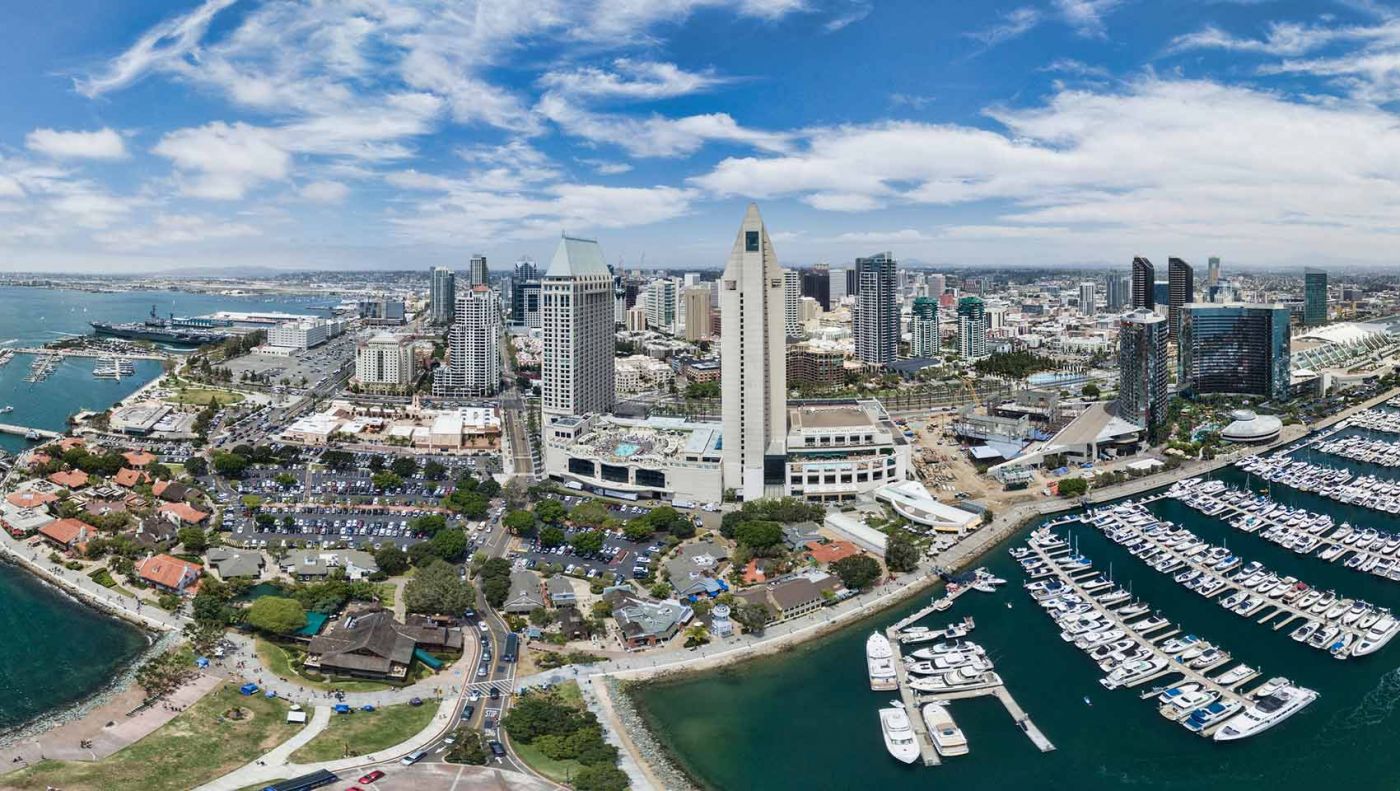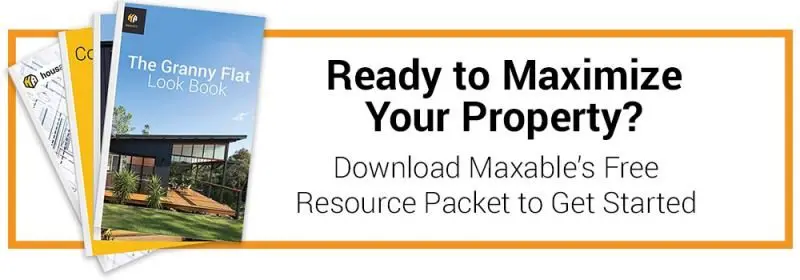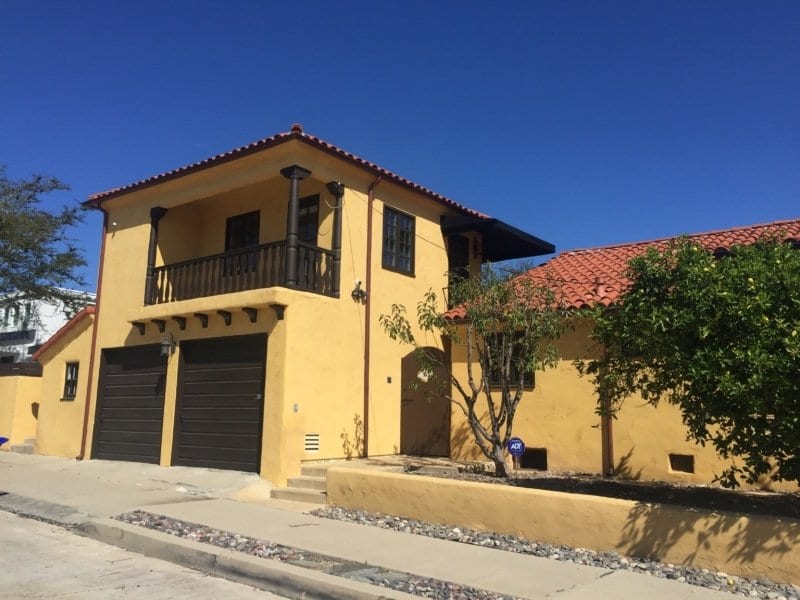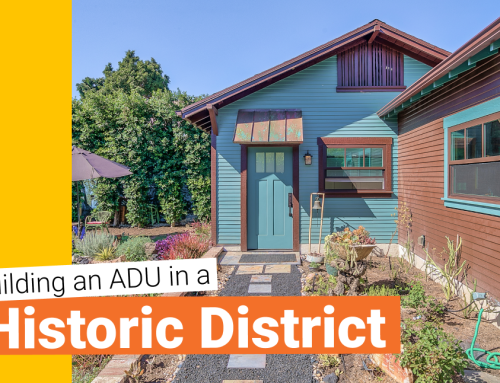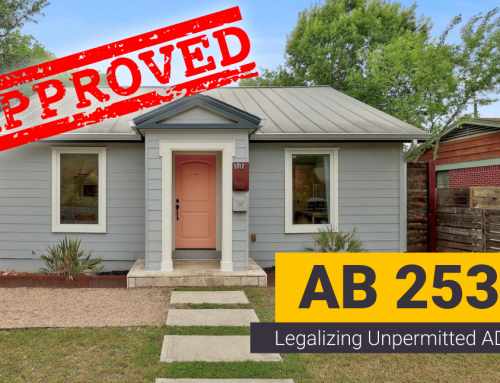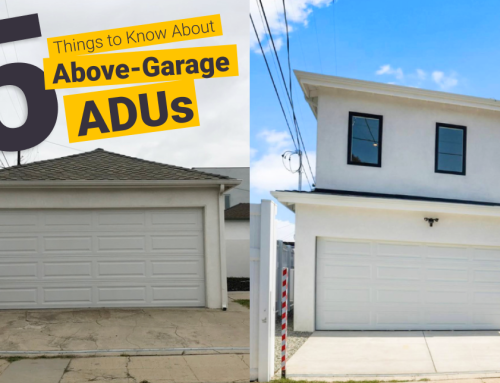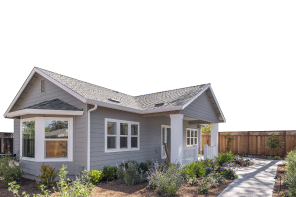The San Diego City Council voted unanimously to waive Development and Impact Fees (DIF) and General Plan Maintenance Fees for the construction of companion units.
Affordable housing advocates hope this will spur granny flat development in a city where rental prices have soared and vacancy rates hover at just 3.3%.
“One of the fastest and least expensive ways we can increase affordable housing in San Diego is to make it easier to build granny flats,” said San Diego Mayor Kevin Faulconer. “With these new incentives, we’re removing barriers to encourage the construction of new units that San Diegans can actually afford. This will be another tool we’ll use to tackle our housing needs.”

What Are Development and Impact Fees?
Development and Impact Fees help connect a new single-family residence into the electric grid, build a road in front of your house, connect you to the sewer system, and go toward public school fees.
For the last 16 months, homeowners were being charged fees that were not proportional to the size of the project. Even more controversial, DIF fees are intended to be a one-time payment.
These lots have already paid the fees for the construction of the original home.
The fee is determined by the type, size, and location of the development for the building permit being issued. Payments collected are placed in a special city fund by the community, to be used solely for those public facilities specifically defined or generally described in the Development Impact Fee Plan for each community.
San Diego Residents Can Expect to Save:
- $2,000-$80,000 on Development and Impact Fees
- $200-$300 on General Plan and Maintenance Fees
- There will also be a waiver until the end of the fiscal year to remove the water and sewer connection fee, which will save savvy homeowners enough to jump on this an additional $3,700.
You’ll gain access to a free cost estimator with case studies for financing
What About Residents in the Permitting Process Now?
Residents who have not yet received their permits should apply for a deferral. The waiver will take two weeks to finalize and another 30 days to go into effect. Sadly, the city will not issue a refund to any homeowner who already completed their project earlier in the year.
How Much Does it Cost to Permit a Companion Unit?
Jared Basler, at Basis Studio, said that for a standard garage conversion homeowners would have paid around $17,000 in fees and now it’s been reduced to ~$4,500.
Homeowners will see a similar level of fees for a 500 square foot stand-alone companion unit of $4,500. Plus, if they build in this fiscal year they’ll save an additional $3,700 from the temporary water and sewer connection fee. So if you’ve been thinking about this, don’t wait!
How will a Development and Impact Fee Waiver Affect Construction?
Basler said last year he received over 500 accessory dwelling unit inquiries and only 17 projects came to fruition. That’s less than a 4% completion rate.
“Homeowners were waiting for the DIF fees to be removed. Now that that’s happened I have had a flood of homeowners contact me,” said Basler.
San Diego had only 64 applications for permitting but it’s obvious from the numbers above that there’s a lot of interest. Those following companion unit progress closely are expecting a huge increase in development.
We can also look at other cities, like Portland, for a sneak-peek into the future. When Portland passed their waiver program they saw a 5x increase in permits. They now regularly permit 600-700 units a year.
Looking Forward at Rising Housing Costs
“Companion Units provide a great housing option in the City that we desperately need and today we have moved one step closer to increasing the number of these units by reducing the burdensome fees,” said Councilmember Scott Sherman, one of the City Councilmen advocating for the change. “The three barriers to building Companion Units are regulatory ordinance barriers, excessive fees, and ease of permitting. The City has already tackled the ordinance, today has tackled fees, and the only task left for us is to make it easy for San Diego to build these units. In the near future I will be bringing forward a Companion Unit toolkit providing three different designs that will help homeowners easily navigate the development process to achieve our goal of 2,000 to 6,000 new units over the next ten years.”
San Diego’s median home price hit an all-time high at $550,000, making San Diego one of the least affordable metro areas behind cities like San Jose, San Fransisco, and Honolulu.
The percentage of average weekly wage required to pay down a median-priced home in San Diego is a whopping 64.6%.
The San Diego City Council hopes that granny flats will become an increasingly popular option for cities to boost the development of housing. It also would expand the inventory of 1 and 2-person housing.
As families have changed from 3+ person households to, more commonly, 1-2 person households the available housing hasn’t kept up with the trends. The average house size in the US is 2,200 sq ft. There’s a lack of inventory for 1 and 2 person homes.
Interested in building a granny flat after these fee waivers? Contact one of our experts for a free consultation to get started.
Plan, hire, and manage your ADU project with Maxable.
At Maxable, we believe that building an ADU should be fun and exciting. You shouldn’t have to be the one to deal with confusing obstacles like permitting snafus or ever-changing regulations. We’ll be by your side every step of the way and connect you to experienced designers and general contractors in your area to make sure your project goes as smoothly as possible.
Leave the headaches to us! Check your address and see what Maxable can do for your home during a free ADU Planning Call.

